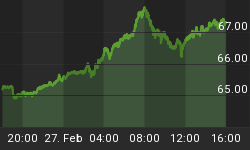In the past 48 hours, two stories broke that illustrate how dominant technology has become in the age-old war between freedom and control:
Malware Lets a Drone Steal Data by Watching a Computer's Blinking LED
(Wired) - A group of researchers at Ben-Gurion's cybersecurity lab has devised a method to defeat the security protection known as an "air gap," the safeguard of separating highly sensitive computer systems from the internet to quarantine them from hackers. If an attacker can plant malware on one of those systems -- say, by paying an insider to infect it via USB or SD card -- this approach offers a new way to rapidly pull secrets out of that isolated machine. Every blink of its hard drive LED indicator can spill sensitive information to any spy with a line of sight to the target computer, whether from a drone outside the window or a telescopic lens from the next roof over.
Conservative provocateur targets CNN with secret recordings
(CNN) - Conservative provocateur James O'Keefe is setting his sights on CNN.
O'Keefe said in a telephone interview with CNN on Wednesday that he has "a few hundred hours" of "secretly recorded material" from inside the network. "We're calling it CNN Leaks," he said, drawing inspiration from WikiLeaks' document dumps.
He said "part one" would be published Thursday at about 10 a.m. ET. "This is all legally recorded information," he said, declining to be more specific.
The first article illustrates the extraordinary -- and increasing -- power that cutting-edge tech offers governments to watch and otherwise control their citizens. Combine the above relatively-narrow-gauge application with the NSA's existing ability to monitor pretty much every electronic signal, facial recognition software that can pick individuals out of crowds, algorithms that lip read, and tiny drones that can see without being seen, and the potential result is a police state that's slicker, subtler and therefore scarier than anything envisioned in dystopian novels like Brave New World or 1984.
But the second story is the counterweight, illustrating how those same technologies are being used around the world to expose the secrets of the powerful. Where Daniel Ellsberg once had to spend months photocopying the Pentagon Papers and physically sneaking them out of his Defense Department office, today all that's required for a major leak is one disillusioned or otherwise motivated insider with a thumb drive, laptop or smart phone.
In just the past few years, Sony's emails were hacked and released, to the profound embarrassment of Hollywood; US military misbehavior was exposed by a lowly private named Bradley Manning; the Democrat National Committee's emails - which exposed collusion between political operatives and mainstream media, among many other things -- were published just in time to cost that party the presidency; and of course the great Edward Snowden, an outside contractor for the NSA, exposed the breathtaking illegality of US spying here and abroad.
Every big organization now lives with the knowledge that it's one leak away from existential crisis -- and that there is no fix. Doing big, bad things requires a lot of people with the ability to access and understand what you're doing. And it only takes one of them with widely-available technology to expose you to the whole world.
With all the issues now dividing people - abortion, Israel, immigration, etc., etc. - this might be the most telling. Do you see Snowden and WikiLeaks' Julian Assange as traitors or heroes? Because the worlds in which they end up one or the other couldn't be more different.















